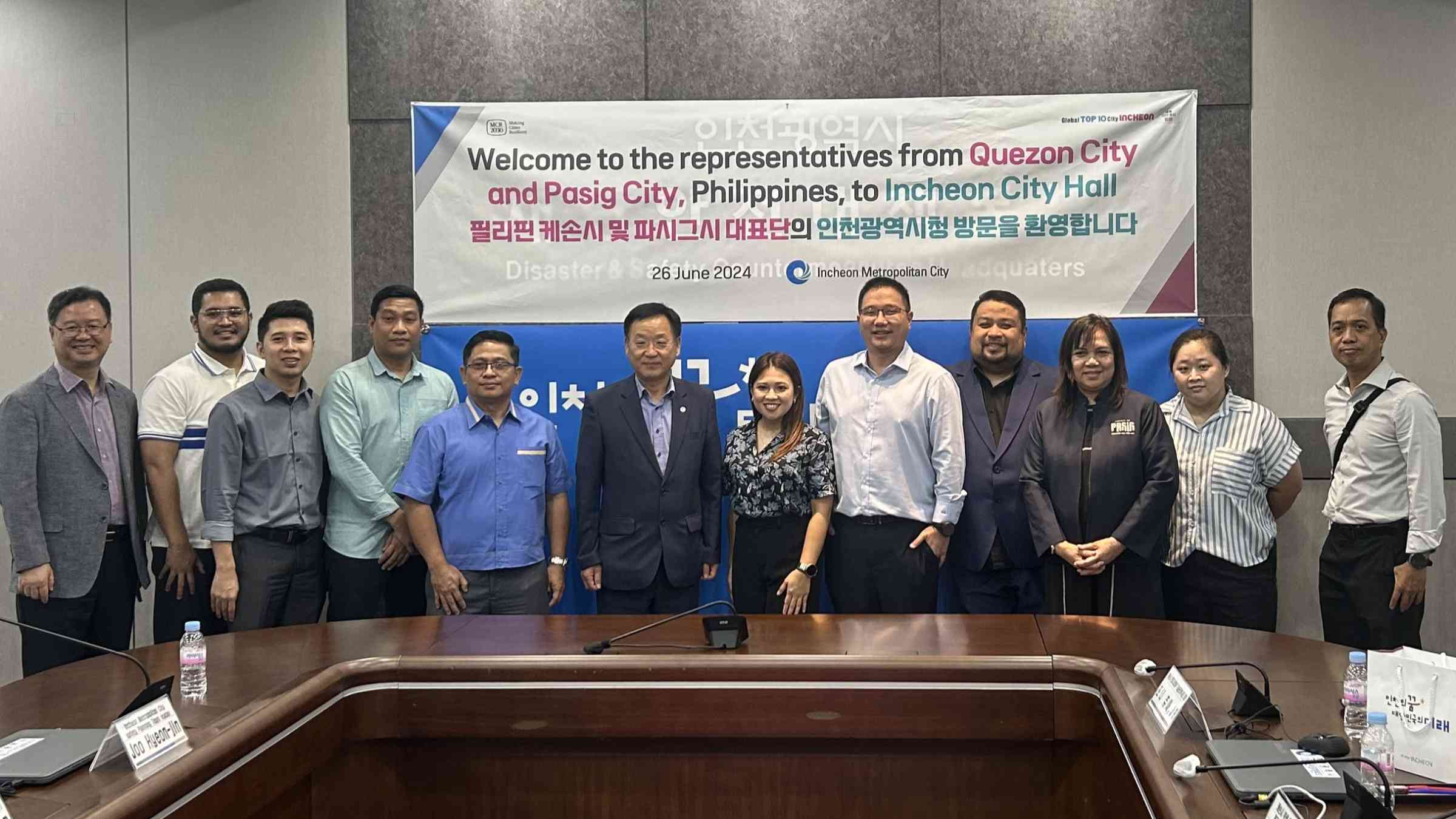Incheon leads the way: City-to-city exchange with Pasig and Quezon on climate resilience

Incheon Metropolitan City, the first MCR2030 Resilience Hub in the Asia-Pacific region, welcomed a delegation of Quezon City and Pasig City in the Philippines to a three-day city-to-city exchange and training organized in collaboration with the United Nations Office for Disaster Risk Reduction (UNDRR) Office for Northeast Asia and Global Education and Training Institute (ONEA & GETI).
During the exchange, government officials from Pasig and Quezon City met with high-level officials from Incheon and shared their experiences of good practices in disaster risk reduction and management.
“Disasters know no borders. Cities around the world face common challenges and we are committed to UNDRR’s initiative of creating city-to-city learning networks and providing a platform for collaboration. We appreciate Pasig City for its efforts in developing measures to address greenhouse emissions and Quezon City for enhancing early warning systems through various channels”
Mr. Sung-hun Kim, Emergency Director of Citizens Safety Headquarters of Incheon City.
Pasig City and Quezon City delegations, comprising five representatives each from various local government departments in charge of disaster risk reduction and management, city planning, natural resources, sanitation and clean up, environmental sustainability and engineering, visited various institutions in Incheon City to learn about flood mitigation, water resource management, environmentally sensitive solid waste management, emergency coordination centers, response services, and smart city platforms.
On visiting the Incheon Emergency Operation Center and IFEZ Smart City Operation Center, Ms. Bianca Perez, Officer-in-charge for Quezon City Disaster Risk Reduction and Management Office (Quezon CDRRMO) was impressed by Incheon City’s continuous investment in digitization of city services and systems.
“We now understand the importance of integrating technology into local community-focused approaches for increased efficiency. Our projects like development of retention basins and solarization of built spaces compare to Incheon’s projects. We appreciate the solarization outputs put up by the Incheon City Hall in the lobby area and wish to learn how we can implement similar projects in our city.”
Ms. Bianca Perez, Officer-in-charge for Quezon City Disaster Risk Reduction and Management Office (Quezon CDRRMO)
Additionally, UNDRR organized training sessions to introduce the Climate Resilience Addendum and the Multi-Hazard Early-Warning System (MHEWS) Addendum of the Disaster Resilience Scorecard for Cities.
“The two sets of Scorecard have not only helped us realize our struggles, and deficiencies, but also helped us identify our strengths. While scoring the indicators, we realized how we have not addressed some aspects of data collection, coordination, and implementation. Pasig city is an old city and a realization of what we need to do to retrofit and reestablish the city was much needed”
Allendri Angeles, Officer-in-Charge of City Environment and Natural Resources Office (CENRO), Pasig City.
Mr. Sanjaya Bhatia, Head of UNDRR ONEA & GETI, noted, "The challenges that cities face around the world are very similar and it is very important that cities share experiences and learn from each other. This city-to-city exchange is a great opportunity for Pasig, Quezon, and Incheon to learn from each other.”
This city-to-city exchange was organized as part of Making Cities Resilient 2030 (MCR2030) to foster collaboration and network among cities on disaster risk reduction and climate resilience. MCR2030 is a United Nations-led global partnership that has mobilized more than 1,700 local governments from 86 countries and territories, representing 556 million people, committed to strengthening their disaster and climate resilience. Thirty-two MCR2030 municipalities have been recognized as Resilience Hubs and global leaders in disaster and climate risk reduction. This recognition is accorded to a select few cities that possess a track record of reducing their own disaster and climate risk and who also commit to helping other municipalities do the same.

